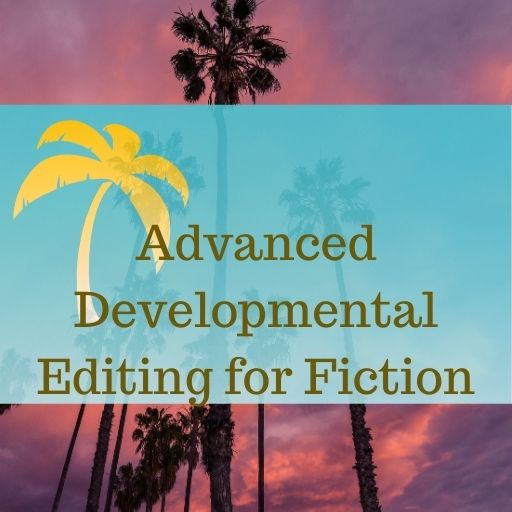Judging your editorial skills
One of the challenges with working with indie author clients is they aren’t always the best judges of what constitutes good editing. They may think that because an editor has left very few comments on their manuscript, the editing is fine and their manuscript must be in good shape. But maybe the editor is just lazy, or doesn’t know what to do about the problems they’ve encountered, or doesn’t know how to identify story problems, or is too rushed to do good work.
Or they may think that an editor who effusively praises them is a good editor. Or, conversely, sometimes they think an editor who is sarcastic and mean is a good editor. (I’ve heard this from authors who are shocked by what an editor has said about their work but still feel loyal to that editor: “Tearing me down makes me a better writer.”)
So it can be difficult to decide whether you’re as effective as you could be. If a client says, “Great, thanks!” and pays your invoice, what does that mean? That you did a great job or that they just don’t know any better?
If you’re getting all of the clients you could want and they’re telling their friends all about you and coming back for more, then by all means continue doing what you’re doing. But if that’s not happening, or it’s not happening as much as you’d like, or if you have a sneaking suspicion that you could be doing your work better, then read on.
A few paragraphs ago, I said, “it can be difficult to decide whether you’re as effective as you could be.” By “effective” I mean do you help the author tell their story better?
What I mean by “better” could probably use some defining, so let me take a quick run at that. In general, as developmental editors, we’re looking for competent prose (readers can comprehend the story on the literal level), adherence to genre conventions if any (or a meaningful and effective subversion of genre conventions), some kind of narrative drive that pulls the reader along (usually created by conflict), and characters whose motivations we understand.
If you don’t know how to evaluate any of these factors, it would be difficult for you to help the author tell a better story. And just as important, if you’re not able to convey your editorial judgment in a way that the author can understand – and! this is crucial! – is motivated to act on, then you’re not as effective as you could be.
You might know all the right things for the author to do but if the author is unconvinced, you haven’t helped the author tell a better story.
Now, certainly there are some authors who aren’t motivated to improve their work but typically if an author has paid you to give them feedback, at some level they want to make their work better. So if they reject all of your feedback, you have probably failed to communicate your recommendations effectively.
This failure may have occurred early on, when you thought you were editing a romance and they thought they’d sent you a thriller; or it may have occurred later, when they said they were concerned about character development and you didn’t say a word about it in your edit (leading them to assume you didn’t pay attention to anything and can’t be trusted); or at any number of points before, during, and after the edit itself.
And often an author doesn’t say anything about their dissatisfaction. They just don’t bother to implement your recommendations. (This is not to say that an author should do everything you recommend uncritically but it does mean that they should see the overall sense of your edit and make changes to correct problems you’ve identified, even if their solutions aren’t the ones you recommended).
So how can you figure out if you’re editing effectively? My main go-to resource for gut checks is my colleagues. (The specifics I describe here are about developmental editing of fiction, but the basic strategy is the same regardless of what you edit).
First, identify colleagues who have more experience than you do and who seem to have plenty of clients. You can’t always tell just by looking at their website or their LI profile, but you’re looking for people who are working full-time as editors (since this typically means they have a full dance card or else they’d still be doing it as a side gig) and who target similar clients.
Then, look at their marketing communications – blog posts, LinkedIn pieces, podcast appearances. Are they talking about storytelling and editing in a way that makes you nod your head and say, “Yes, I do that, too”? That’s not to say you should do everything exactly alike, but if you have a colleague who talks about creating satisfying character arcs and you don’t know what a character arc is, then you have some education in store for you.
Next, you have to make friends! If you don’t have a network of editor colleagues that you can ask favors of, you have to develop it. So, reach out to people! Connect with them on social media, interact with posts they’ve written, that kind of thing. Once you’ve established a connection, ask if they’d be willing to talk about editing triumphs and challenges with you on a call or over coffee if they’re local. Establish some give-and-take here.
Once you’ve established a collegial relationship, ask if they would be willing to help you by reviewing some of your edits. Don’t expect them to read an entire novel edit, but ask if you can send over a few pages (ask permission of your author client first) (if you don’t have an author client, make up a sample edit based on a novel that’s out of copyright protection – Gutenberg.org is the place to start).
If you want a shortcut around the “you have to make friends” step, then offer to pay for this evaluation. My colleagues and I often trade critiques and help each other out, but sometimes I hire coaches when I need to make it all about me me me and that works out well, too.
The key is you need outside feedback that isn’t centered on clients who may not be good judges of your work.
Join the Club!
New to story editing? Begin at the beginning.





